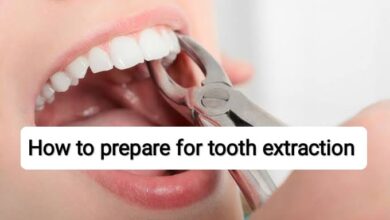How to calm an irritated tooth nerve

If experiencing a toothache, tooth nerve damage could be the culprit. How to calm an irritated tooth nerveDental trauma services can relieve pain and restore your teeth to full functionality, but in the meantime, there are ways to relieve some pain at home.
Table of Contents
Common Tooth Nerve Pain Symptoms
The nerves inside and around the teeth are highly sensitive. Typically, these nerves are protected by the hard exterior of the teeth. However, they can become exposed to damage or decay, leading to painful, persistent pain. Toothaches caused by nerve pain will need professional attention. Your dentist will diagnose and treat the issue. Some of the causes of tooth nerve pain are obvious, such as a broken, cracked, or chipped tooth. In other instances, decay can cause pain to occur slowly. Some of the most common symptoms of tooth nerve pain include:
- Sensitivity to hot or cold temperatures
- Sensitivity to acidic foods or beverages
- A dull ache along the gumline
- Sharp pain in one tooth
Persistent toothaches can keep you from sleeping and from fulfilling responsibilities at home or at work. Left untreated, tooth nerve pain is likely to continue and become even worse. Eventually, to fully treat the issue, you may need a more invasive procedure, such as a root canal.
What To Do For Tooth Nerve Pain
If you’re experiencing severe pain or have damaged a tooth, reach out to your dentist right away. Some home remedies can provide relief, but they won’t treat the root cause of the pain, which could be related to an injury or wear on your teeth. Your dentist will be able to address the underlying causes of any pain through dental services. If you can’t get to a dentist or are waiting for an appointment, there are a few things you can do:
- Take an over-the-counter pain reliever – Acetaminophen, ibuprofen, and other pain relievers can ease the pain
- Use a cold compress – An ice pack or cold damp cloth can numb the area and can be especially helpful if you are experiencing swelling
- Swish salt water or peroxide – These rinses can relieve inflammation
- Use an over-the-counter anesthetic – Stop by the pharmacy for a gel that you can apply straight to the teeth, or use clove oil for an all-natural remedy
While some damage to the nerves of the teeth can be the result of an accident or injury, taking care of your teeth and gums through brushing, flossing, and visiting your dentist regularly can reduce your risk of toothaches relating to decay. In addition, wearing a mouthguard at night or while playing sports can help you avoid damage.
What Should Do For Tooth Nerve Pain
Avoid Extremely Hot or Cold Foods: Consuming foods and beverages at extreme temperatures can trigger sensitivity and pain in your teeth, so avoid hot coffee, ice cream, or anything that can exacerbate the irritation.

Don’t Chew on the Affected Side: Chewing on the side of your mouth with the irritated tooth can worsen the pain. Try to eat on the opposite side or avoid hard and crunchy foods altogether.

Steer Clear of Acidic Foods: Acidic foods and drinks, such as citrus fruits and sodas, can erode tooth enamel, making the nerve more exposed and sensitive.

Don’t Use Toothpicks or Hard Objects: Avoid using toothpicks, sharp objects, or hard candies that can cause further damage to the affected tooth and irritate the nerve.

Skip Over-the-Counter Pain Relievers: While over-the-counter pain relievers like aspirin or ibuprofen may temporarily reduce pain, they won’t address the underlying issue. It’s essential to see a dentist for a proper diagnosis and treatment.

Do Not Apply Heat or Ice Directly: Applying heat or ice directly to the irritated tooth can worsen the pain or even damage the tooth further. It’s best to consult a dentist for appropriate treatments.

Avoid Alcohol and Tobacco: Alcohol and tobacco products can aggravate tooth sensitivity and hinder the healing process. It’s advisable to cut down or eliminate their use.

Don’t Delay Dental Care: Ignoring the problem and delaying a visit to the dentist can lead to the worsening of tooth nerve irritation. Dental issues typically don’t resolve on their own and may require professional treatment.

Refrain from Self-Medication: Using alternative remedies or home treatments without professional guidance can be risky. It’s always best to consult with a dentist for appropriate care.

Don’t Brush Aggressively: Brushing too hard or using a toothbrush with hard bristles can further irritate the tooth nerve and damage the enamel. Use a soft-bristle toothbrush and gentle brushing techniques.
FAQ Section
Q1: Can a tooth nerve irritation heal on its own?
A1: In some cases, mild irritation may resolve on its own, but it’s essential to consult a dentist for a proper evaluation.
Q2: What can I do to prevent tooth nerve irritation?
A2: Maintain good oral hygiene, visit your dentist regularly, and wear a mouthguard if you grind your teeth.
Q3: Are there any natural remedies for tooth nerve irritation?
A3: Aside from clove oil, some people find relief from applying a cold tea bag to the affected area or using a garlic paste.



